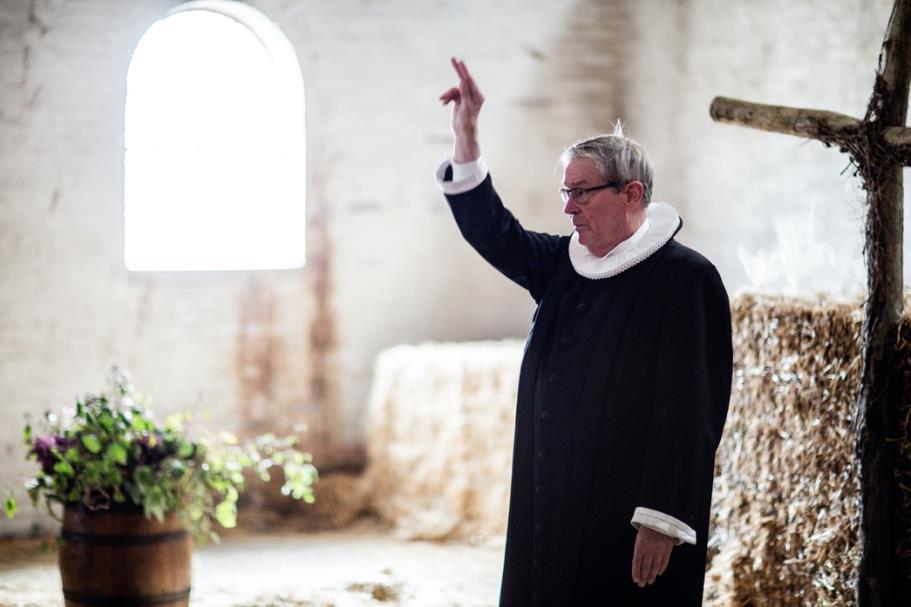
According to Italian journalist Iacopo Scaramuzzi (writing on his Facebook page), the coronavirus epidemic has succeeded in pushing reforms into the Catholic Church in a way nothing else has—with laypeople organizing their own domestic liturgical life and a variety of creative responses to an unexpected situation preventing the gathering of faithful in places of worship. While the long-term effects envisioned by Scaramuzzi remain to be confirmed, the pandemic has indeed become a source of changes, both in encouraging new ways of keeping religious life alive and through preventive measures with a direct impact on religious rituals. Since there have been many instances of virus propagation apparently being caused by singing (including entire choirs having been infected), choir and congregational singing is now being frowned upon in many places, or very limited (for instance in Austria). In the Catholic diocese of Berlin, Germany, congregational singing should be avoided, and only one singer plus the organ are allowed.
In an article published on the website of the Orthodox Church in America (OCA) (May 19, 2020), Robert Freeman (Director of Music at Saint Vladimir’s Orthodox Theological Seminary) comments that “as we prepare to reopen our churches, we must carefully consider the high risks associated with choral singing.” He argues that clergy and singer should be reduced to a bare minimum. “One isolated chanter replacing the choir will undoubtedly help reduce risk.” Freeman goes as far as asking the question: “Will we embrace more silence in our services?” Asking such a question in itself shows the potential for changes brought into the life of religious groups by health considerations. The ways of experiencing community life are also bound to change, at least in the short term. Social distance between people not living in the same household will now be enforced, beyond various other measures. Pews will no longer be full, and there will be empty seats and empty rows; in some churches people will be assigned specific spots. It presents a special challenge for congregations accustomed in packed halls. Congregations of various denominations will now require people to register in advance of attending.
Some congregations intend to celebrate several Sunday worship services, while some mosques have experimented with splitting Friday prayers into several sessions, although this does not seem to be widespread. For many religious communities, livestreaming services will remain a crucial channel beside physical gatherings for reaching as many members as possible. In Switzerland, a condition for the resumption of public services is that as full list of participants should be kept during 14 days by every congregation and made available to civil authorities in case one of the participants tests positive in the meantime. In Christian churches, giving communion to the faithful has become a challenge. In Switzerland, where public religious services can take place again from May 28, the initial project of the Swiss Federal Office for Public Health mentioned that sharing of food, including communion, would not be permitted during religious services. While the Reformed Church accepted the limitation, neither Catholics nor Orthodox would, and they asked for an adjustment of the general rules in order to make them compatible with their traditions. Many Catholic dioceses insist that communion should continue to be received in the hand only, without any word being said by the priest to the communicant.
In Orthodox Christian congregations, the issue of the reception of communion has given rise to debates (Balkan Insight, April 27, 2020), with the Greek Orthodox Metropolitan Augustinos of Germany announcing that the official rules would make it impossible to give communion to the faithful with a single spoon, and thus only the clergy would commune, while Metropolitan Arsenios of Austria, on the other hand, has decided to give communion in the hand. More churches seem inclined to use individual metallic spoons, sterilized after the service. In an article on the debate (Public Orthodoxy, May 21), Deacon Daniel Galadza (University of Regensburg) remarks that ecclesiastical authorities should be “mindful that these decisions and changes might remain in force for some time after the pandemic has passed.” This indicates how the current responses to an emergency situation might possibly have lasting consequences in the very practices of some religious traditions.
(The short article (in Italian) by Iacopo Scaramuzzi had not been published online, but has been reposted on his Facebook account: https://www.facebook.com/jesus.sanpaolo/posts/3060281954063641; Robin J. Freeman, “What COVID-19 Means for Singing in Church,” https://www.oca.org/reflections/misc-authors/what-covid-19-means-for-singing-in-church; Yiannis Baboulias, “Communion and the Coronavirus: COVID-19 Triggers Deep Orthodox Divisions,” https://balkaninsight.com/2020/04/27/communion-and-the-coronavirus-covid-19-triggers-deep-orthodox-divisions/; Daniel Galadza, “‘Remember, O Lord…’: Liturgy, History, And Communion Spoons In A Time Of Pandemic, https://publicorthodoxy.org/2020/05/21/liturgy-history-and-communion-spoons/)
